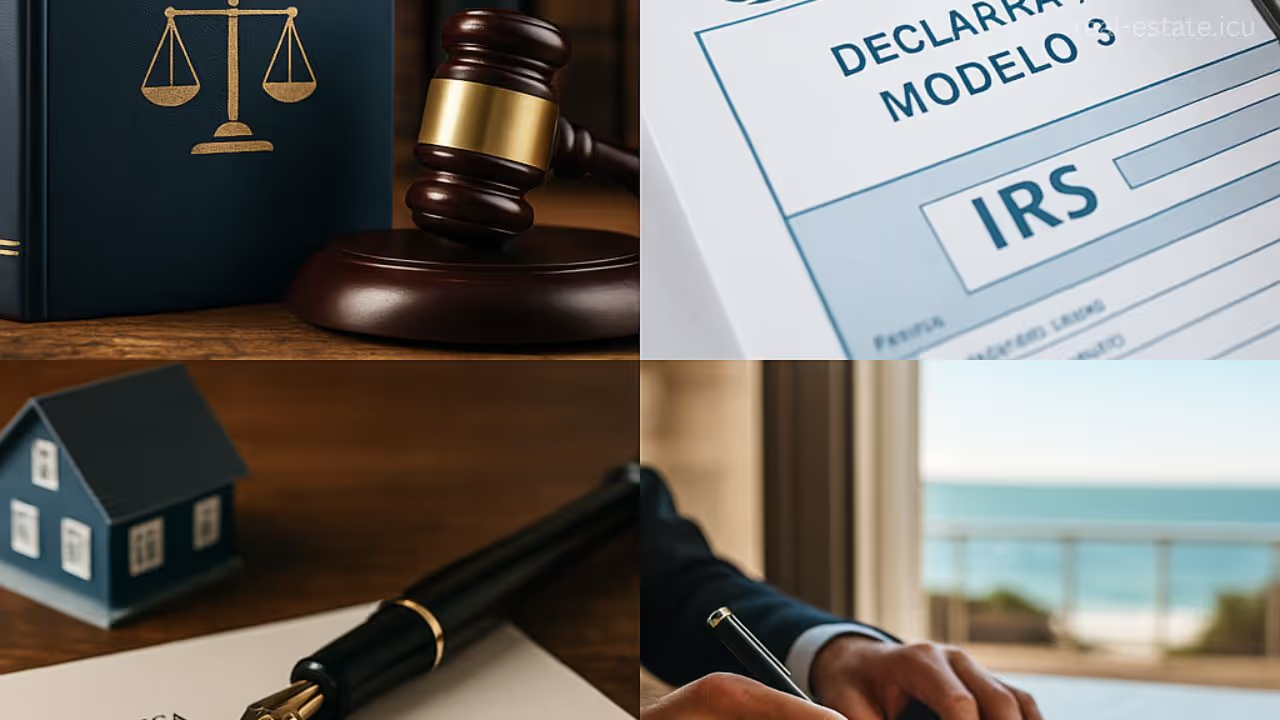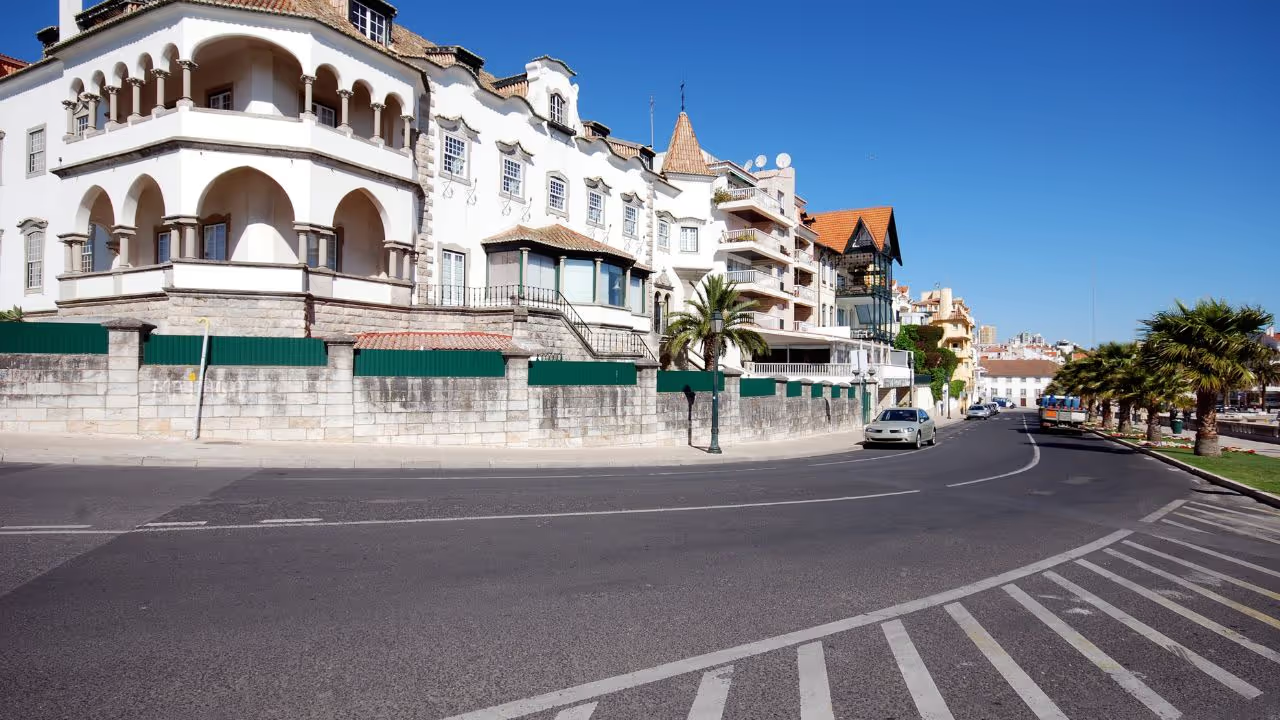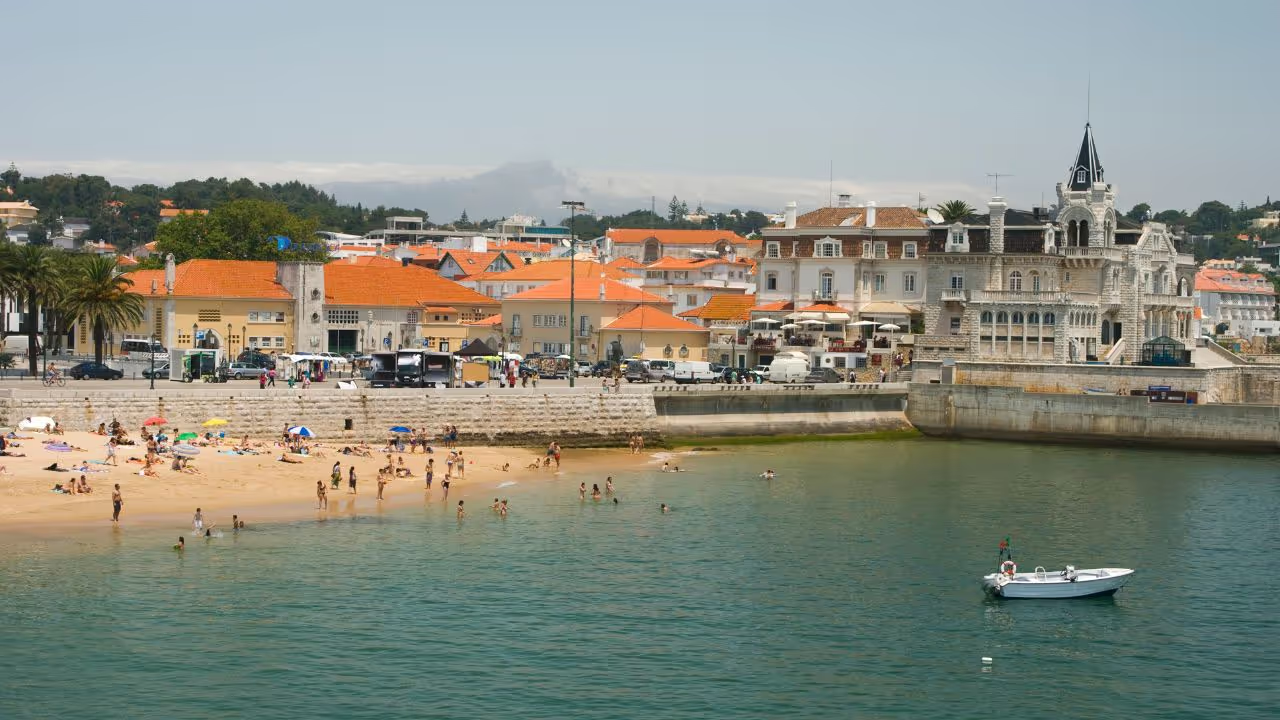Legal & Fiscal Guidance for Property in Portugal

1. Overview of Legal & Fiscal Framework in Portugal
Buying property in Portugal involves understanding both legal steps and fiscal obligations. Whether you’re eyeing a seaside apartment in Cascais Central or a villa in Guia, a basic grip on the legal framework and taxes helps avoid surprises. Portuguese law sets out clear procedures for property transactions, while fiscal rules determine taxes at purchase and ongoing costs.
Portugal’s legal system for real estate is based on civil law traditions. A notary public (Notário) oversees the deed signing (Escritura), but due diligence—checking title, encumbrances, and planning permissions—rests with you and your advisors (practiceguides.chambers.com, portugalbuyersagent.com). Fiscal authorities (Autoridade Tributária) require various declarations and payments, from property transfer tax (IMT) to stamp duty and annual property tax (IMI). Understanding who handles what—and when—is key.
- Property ownership types: full ownership (domínio pleno) is most common. There’s also usufruct arrangements or leasehold structures, though rarer for residential buyers.
- Due diligence basics: verify seller’s title deeds at Land Registry (Conservatória do Registo Predial), check if property has mortgage or liens, and confirm planning permissions with Câmara Municipal. For older properties, check heritage restrictions if in Cascais Central or Estoril (practiceguides.chambers.com, divine-home.co.uk).
- Fiscal residency vs non-resident: your tax status affects reporting. Non-habitual residents (NHR) enjoy special tax rules for certain incomes, useful if you plan to rent out or earn abroad (tagusproperty.com).
- Key steps and actors: you engage a lawyer (advogado) for contracts, a notary for the final deed, and often an accountant/tax advisor for fiscal filings. A buyer’s agent can coordinate many aspects—see Buying in Cascais guide and consider Why a Buyer Agent if new to local practices.
Early clarity on legal and fiscal aspects prevents delays. For remote buyers or expats relocating, aligning legal advice with fiscal planning (e.g., NHR application timing) matters. Portugal’s system is transparent but has deadlines: missing a tax payment window (e.g., IMI annual deadline) can incur penalties (inlis.pt, pwc.pt). Using internal resources like Documents & Taxation helps prepare.
2. Acquisition Taxes and Fees
When buying, several taxes and fees apply. Knowing the amounts and rates in 2025 ensures budgeting accurately.
- IMT (Imposto Municipal sobre a Transmissão Onerosa de Imóveis): property transfer tax. Rates are progressive based on purchase price and property type. For primary residences, young buyers up to 35 may benefit from exemptions under recent Decree-Law 48-A/2024 (practiceguides.chambers.com). General IMT can range up to 8% on higher-value properties. For mixed rural-urban parcels, rates differ (e.g., urban part vs rustic land) (pearlsofportugal.com).
- Stamp Duty (Imposto do Selo): typically 0.8% of purchase price for residential acquisitions (portugalbuyersagent.com). Paid alongside IMT or at deed signing.
- Notary and Registration Fees: Notary fees for Escritura vary by complexity; registration at Land Registry incurs set fees. Lawyer fees for contract review also factor in. These combined may be around 1–2% of property value, depending on services and property complexity.
- VAT (IVA): applies mainly to new developments sold by developers. Standard rate of 23% often included in list price for new-build apartments or villas. Ensure clarity on whether advertised price includes VAT or not.
- Legal and Advisory Costs: engaging a lawyer (advogado) and tax advisor ensures proper contract clauses and fiscal compliance. For expats, translation or dual-language contracts might add costs.
- Other possible costs: surveyor or inspection fees for structural checks; architecture fees if planning renovation; mortgage arrangement fees if financing via Portuguese bank.
| Cost Item | Typical Rate or Amount |
|---|---|
| IMT | 0% – 8% of price (progressive scale) |
| Stamp Duty | 0.8% of purchase price |
| Notary & Registration | Variable, approx €1,000–€3,000+ total |
| Lawyer/Tax Advisor | Depends on scope; often €1,500–€4,000 |
| VAT (new builds) | 23% on price (if applicable) |
| Survey/Inspection | €300–€1,000 depending on property |
For guidance on financing and budgeting, see Buy to Invest or Buy to Relocate services. Agents often coordinate these steps—read Manage Purchase for process details. Timely payment of IMT and Stamp Duty is crucial: failure triggers fines or interest (imin-portugal.com, pwc.pt).
3. Ongoing Fiscal Obligations
After purchase, owners face annual and occasional taxes. Awareness and timely filings avoid penalties.
- IMI (Imposto Municipal sobre Imóveis): annual municipal property tax based on cadastral value (VPT). Rates vary by municipality: most urban properties in Cascais region apply 0.3% to 0.45% in 2025 (immolusitania.ch, theportugalnews.com). Some municipalities may adjust higher for vacant or poorly maintained buildings (pwc.pt). Payment usually due in April; amounts above thresholds can be paid in installments.
- AIMI (Adicional ao IMI): additional tax on high-value property portfolios. Applies when total property value exceeds thresholds (e.g., above €600,000). Rates: 0.7% for value between €600k–€1M, 1% for €1M–€2M, 1.5% above €2M total property value (portugalresidencyadvisors.com). Relevant for luxury buyers or investors with multiple properties.
- Income Tax on Rental Income: if renting out property, rental income is taxable. For non-residents, flat rate of 28% applies unless treaty states different. Residents: rental profit taxed after allowable deductions at progressive IRS rates; 50% of gross rent added to taxable income if furnished for long-term (tagusproperty.com). Use Landlord guide for details.
- Capital Gains Tax: when selling, capital gains taxed: for residents, 50% of gain added to income; for non-residents, flat 28% on full gain (tagusproperty.com). Primary residence sale may be exempt if reinvested in another primary home in Portugal. Timing and reinvestment planning matters.
- Other filings: annual IRS return includes property-related income or gains. Wealth outside Portugal might affect NHR status. Non-habitual residents must track 10-year window for benefits.
- Utilities and local fees: while not taxes, owners pay condominium fees, utilities, waste collection fees—budget these as part of ongoing costs.
- Deadlines and penalties: missing IMI or income tax deadlines can incur interest. Use reminders or engage an accountant. For local contexts, see Documents & Taxation and consult Contact us for recommended advisors.
Keeping records—deeds, tax receipts, rental contracts—is important. For expats, ensure Portuguese bank accounts and fiscal representation if needed. For planning, consider how future changes (e.g., IMI rate shifts) may affect costs.
4. Incentives and Special Regimes
Portugal offers regimes that can affect fiscal planning for property owners or residents.
- Non-Habitual Resident (NHR) Regime: a popular scheme for new residents. For 10 years, certain foreign income (pensions, dividends, etc.) may be taxed at special rates or exempt, benefiting those with rental income abroad. Domestic rental income taxed at flat 28% or as per regime. Timing matters: apply within deadline after residency registration (tagusproperty.com).
- Golden Visa Program: investment route through property acquisition (minimum thresholds). Offers residency but recently tightened rules may require investment in low-density areas or renovation projects. Legal and fiscal advice needed to align with requirements (practiceguides.chambers.com).
- First-Time Buyer Exemptions: Decree-Law 48-A/2024 exempts young buyers (up to 35) from IMT and stamp duty on first permanent residence. Conditions include maximum value limits and residency requirements (practiceguides.chambers.com).
- Renovation Incentives: some municipal or EU funds support energy-efficient upgrades or historic building restorations. These can reduce renovation costs and improve property value. Check Cascais programs or national schemes (e.g., Programa de Apoio à Recuperação do Edificado).
- Tax Deductions and Credits: mortgage interest deductions have been limited, but some deductions for home expenses (e.g., IMI for primary residence under certain family conditions) may apply. Check annual IRS rules.
- Vacation Rental Considerations: Alojamento Local (AL) licensing requires fiscal compliance: register at Finanças, collect rental income declarations, and possibly charge IVA for certain services. Proper fiscal setup avoids fines (portugalconfidential.com).
- Inheritance and Gift Rules: Portugal does not levy inheritance or gift tax between close relatives, but stamp duty at 0.8% on property transfer applies. Estate planning should consider local succession rules and potential double taxation treaties (portugalbuyersagent.com).
- Cross-Border Tax Planning: if you have income/assets in other countries, treaties may avoid double taxation. Engage an international tax advisor to optimize NHR status, rental structures, or corporate ownership vs personal to minimize taxes.
- Internal links for services: For relocation fiscal advice, see Buy to Relocate. For investment planning, Buy to Invest. For detailed documents, Documents & Taxation offers deeper guidance.
- Practical notes: deadlines for NHR application (within 183 days of arrival). Golden Visa timelines depend on investment completion. First-time buyer rules may require evidence of age and no previous property ownership. Always verify latest law changes.
5. Working with Legal and Fiscal Experts: Process & Practical Advice
Engaging qualified professionals ensures compliance and efficient handling of legal-fiscal matters.
-
Choosing a lawyer (advogado): pick someone experienced in Portuguese real estate, fluent in your language if needed. Check reputation via team profiles or referrals. They draft/promulgate promissory contract (Contrato de Promessa Compra e Venda), handle due diligence, and review clauses protecting you (e.g., conditions precedent on financing or inspections).
-
Notary (Notário): final deed (Escritura Pública) occurs at notary office. Notary ensures identities, validates documents, and registers deed. Choose notary near property location.
-
Tax advisor / accountant: handles NIF registration, tax filings (IMI, IRS returns), NHR application, and advises on VAT or IVA implications for services. They keep track of deadlines and guide on deductions.
-
Coordination with buyer’s agent: a buyer’s agent (see Why a Buyer Agent) often coordinates with lawyer and tax advisor, ensuring process flow. They help schedule meetings, follow up on document requests, and clarify fiscal answers.
-
Process flow:
- Initial advice: before offer, consult lawyer/tax advisor on contract terms and tax implications.
- Promissory contract: define price, deposit, conditions (e.g., financing approval), penalties. Lawyer ensures clarity.
- IMT and Stamp Duty calculations: tax advisor calculates amounts, ensures timely payment before deed.
- NHR or other regime application: if applicable, start early; coordinate with relocation timeline.
- Deed signing (Escritura): notary attends; lawyer often present; ensure funds (down payment, fees) ready.
- Post-deed filings: register deed at Land Registry, notify tax authority of new ownership, set up IMI payments, register for rental if needed.
-
Costs and timelines: legal fees vary; budget for lawyer and tax advisor costs (~€1,500–€4,000 each). NHR application takes weeks; Golden Visa may take months.
-
Ongoing relationship: after purchase, maintain contact for annual filings, rental income declarations, or future sale planning. Good advisors highlight changes in law (e.g., IMI rates adjustments).
-
Internal link: for managing your purchase, see Manage Purchase. To contact advisors, use Contact us.
-
Small tips: keep digital and physical copies of documents; maintain a calendar for tax deadlines; consider using Portuguese banking apps for payments; ask advisors for summary checklists to avoid missing steps.
Frequently Asked Questions
-
What taxes apply when buying property in Portugal? Main ones: IMT (0–8% progressive, with some exemptions like first-time buyers under 35), Stamp Duty (0.8%), VAT (23% on new builds), plus notary/registration fees (practiceguides.chambers.com, portugalbuyersagent.com).
-
How is annual property tax (IMI) calculated? Based on cadastral value (VPT). Rates vary by municipality; in Cascais often 0.3–0.45% in 2025. Higher rates may apply for vacant or degraded properties (immolusitania.ch, theportugalnews.com).
-
What is the Non-Habitual Resident (NHR) regime? A 10-year regime offering special tax treatment for certain foreign income (pensions, dividends) and potentially favorable rental income treatment. Must apply within deadlines after residency registration (tagusproperty.com).
-
Are there exemptions for young first-time buyers? Yes: Decree-Law 48-A/2024 exempts buyers up to age 35 on first permanent residence from IMT and stamp duty, subject to conditions on value and residency (practiceguides.chambers.com).
-
Do I need a lawyer and tax advisor for property purchase? While not legally mandatory to hire both, professional advice is highly recommended to ensure due diligence, contract protection, correct tax filings, and regime applications. See Documents & Taxation.
-
How much are ongoing taxes on owning property? Annual IMI (0.3–0.45% of VPT), possible AIMI for high-value portfolios (0.7–1.5% above thresholds), income tax on rental (28% flat non-resident or progressive for residents), plus occasional capital gains tax when selling (tagusproperty.com).
-
What costs for legal and fiscal advisors? Varies: lawyer fees often €1,500–€4,000 depending on complexity; tax advisor similar. Notary fees separate. Always clarify fees upfront.
-
How to apply for NHR? After obtaining NIF and residency (often via Golden Visa or residence permit), apply at Finanças within stipulated period (usually 183 days after residency). Tax advisor can guide required documentation.
-
What if I rent out my property? Register for Alojamento Local if short-term; declare rental income annually; pay IRS or flat 28% if non-resident; keep invoices and receipts for deductions (portugalconfidential.com).
-
Where to find reliable advisors in Cascais? Contact local agencies with legal/tax partners. See team profiles and reach out via Contact us.
Meta description (150 chars): Portugal fiscal guidance: learn property taxes, legal steps, NHR regime, and advisor tips for buying and owning real estate in Portugal.
 Services
Services  Services
Services  Services
Services  Services
Services